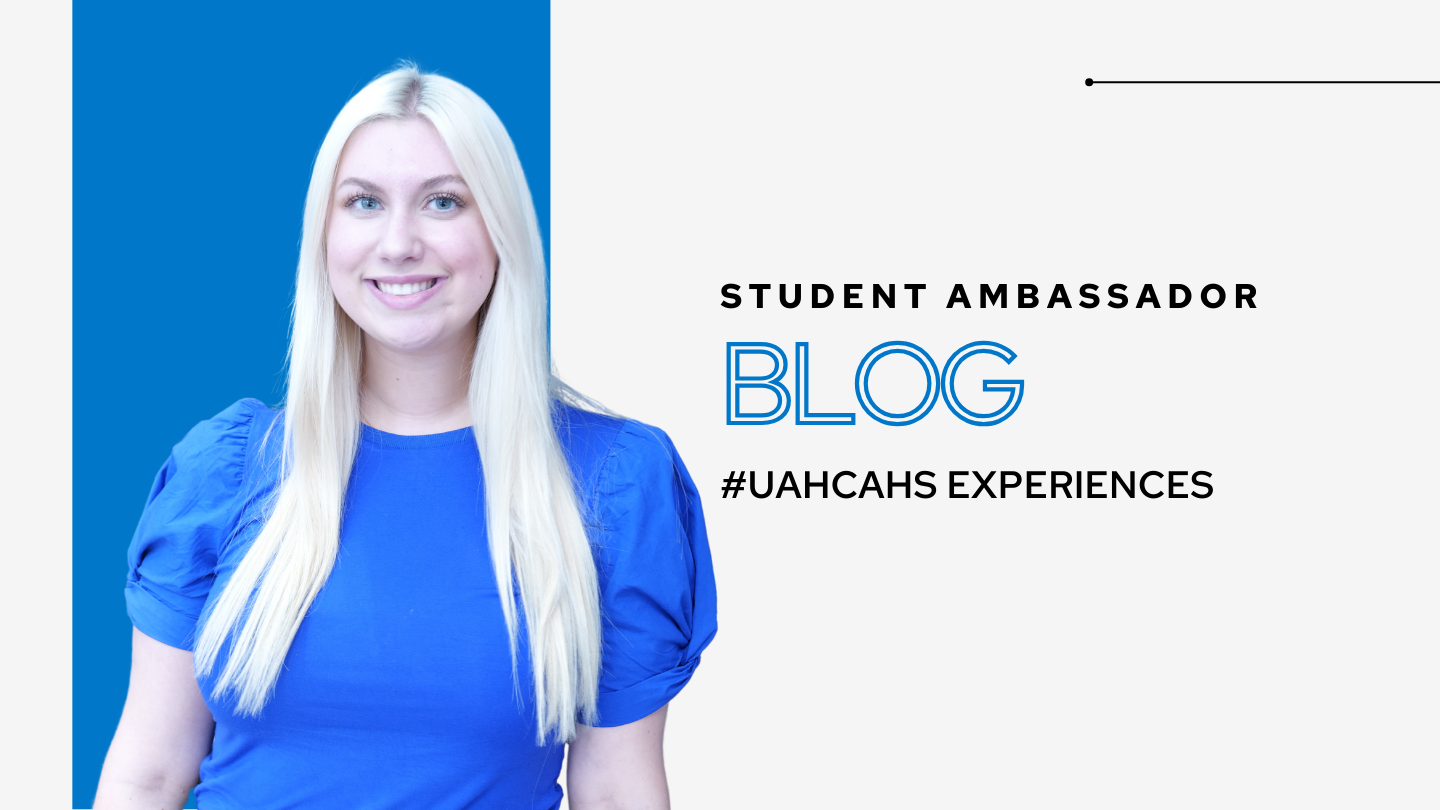
Student Ambassador Blog: Reagan Paulus, Communication Arts
An Interview with Huntsville Counselor and UAH Alum James Desta
I can still remember my first final exam. As a freshman in college, I did not know what to expect. I felt vastly unprepared despite studying for hours. As the professor set down a thick packet of paper and Scantron on my desk, my heart sank. This was my chance to show all I had learned over the semester. More than that, I felt it was my chance to prove I work hard, I deserve an A, and I am worthy of being in this space.
If you’ve had an experience like mine, you’re not alone. Final exams are a major source of stress among college students. More than 89% of college students experience stress from exams, according to the American Addiction Center.
Huntsville counselor and UAH alum James Desta cited several reasons for this.
“Your routine gets messed up, the calendar is more packed, there’s more pressure to do well, and you’re still trying to balance your life as a person outside of being a student,” Desta said.
Finals also tend to fall during or after extracurricular events such as dances, concerts, and shows. Students can feel overwhelmed as they juggle multiple roles.
“Maybe your weekly gaming group is done until next semester, or your friends haven’t had the time to meet up,” Desta said. “Or maybe you met someone in one of your classes you’ve been talking to all semester, and now it’s time for holidays. How serious is it? Would it be weird to have them meet your family? Would it be weird not to?”
Finals also signal a change in your schedule is coming.
“The end of finals means the end of structure and for a lot of us, the beginning of a pretty long stretch of being around family again,” Desta explained. “Even if you like your family… you’re still probably giving up at least some of your independence by staying at home again. Or if you don’t go home, most others have, which means you’ve lost a lot of your community for a while.”
Desta warned that the more stressed students feel, the more they tend to revert back to unhealthy coping strategies that may actually make symptoms worse.
Concordia University reported that many students turn to stimulants such as caffeine and energy drinks to deal with final exam stress. Moreover, they may adopt poor eating habits out of convenience or deprive themselves of rest.
All these factors exacerbate pre-existing mental health conditions such as anxiety and depression. Desta said, regardless of how well you’ve been managing your symptoms during the semester, final exams may make it so that your normal self-care routines just aren’t working anymore. However, there are ways to cope.
Every person is different, Desta explained. “Once you can roughly identify what’s going on underneath your symptoms, it’s a matter of meeting the needs and causes versus meeting the symptoms,” he said.
Regardless of the cause of final exam stress, students may find Desta’s thought exercise helpful. Consider the following example of a student who is anxious and avoids studying for finals.
A - What were you feeling, and what was the impulsive behavior that tried to show up to save you from that situation?
Example: “I’m feeling anxious, and I’m doing everything I can not to have to think about that.”
B - What does it feel like you need that’s not happening?
Ex: “I need to feel like it’s going to be okay, and like I can do a good job.”
C - Imagine the worst case scenario happens. What does that mean about you or your life?
Ex: “I’m not good enough.”
D - How can you prove the opposite of that belief to yourself now?
Ex: “Start with the course you feel like you’re the best at, even if that’s not one of the closest ones. Remind yourself you know how to study, and that you can understand and remember important things. Or go accomplish something unrelated to get into a headspace of personal agency. Wipe down some counters, make your bed, take the trash out, play your Wordle, beat a level of a platforming game… just something to remind yourself that you do have the ability to overcome. Then, choose one thing to study and only bring those materials so you don’t end up paralyzed with indecision.”
Students may also find it helpful to connect with peers, Desta explained, “Intentionally setting aside time to meet up… with a friend can be a great reminder that it’s not just you, and that you’re going to get through it!”
Desta graduated from UAH in 2012 with his B.A. Psychology and Music before obtaining his M.S. Counseling Psychology from Alabama A&M. He owns his own practice called James Desta Counseling in Downtown Huntsville. As an EMDRIA-Certified EMDR therapist, Desta specializes in trauma therapy, both acute and developmental, and is drawn to treating attachment issues. Learn more at www.jamesdesta.com.